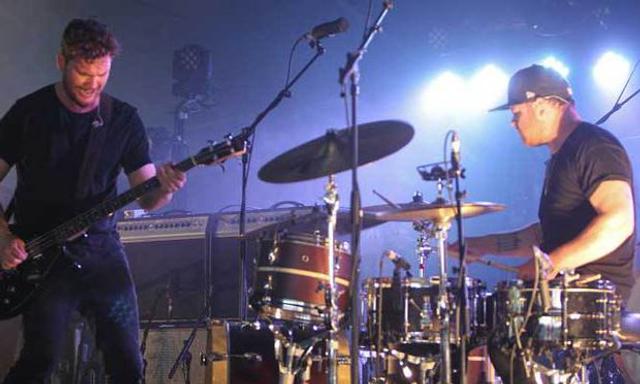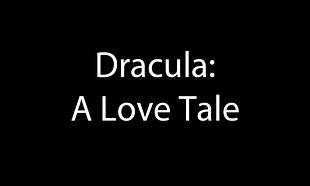Support slots at Arctic Monkeys' Finsbury Park shows, a barnstorming performance on the John Peel stage at this year's Glastonbury, the blessing of Led Zep legend Jimmy Page and one of the year's most anticipated debut albums...Royal Blood's rapid ascent since forming in 2012 has seen the Brighton based band take in some unforgettable experiences.
On the release of their eponymously titled debut album, drummer Ben Thatcher talks candidly about the band's speedy progress, inevitable comparisons with other rock duos and an encounter with Jimmy Page at a New York gig.
Words: Phil Cummins
What has surprised you most about the band's rapid ascent?
I think how quickly it's all happened and how quickly it's all come together from the first single to the release of the LP has taken us by surprise. One of our managers sent us a picture of us playing a gig a year ago to the day and it was hilarious just looking at how the crowd and the venues have changed for us since then in that small space of time.
Do you think the speed at which Royal Blood have progressed is due, in part, to the fact that you're a duo; that if there were third and fourth members in the band that the process would be slower in terms of arranging other instruments for recording?
It all depends on the members of the band, I guess; their chemistry together, how they work together...there's no quicker way of doing it, I don't think and it happens at its own pace. If we had another two people in our band, they might well write their parts quicker than we write our parts. It all depends on the people you're working with and the chemistry within the group.
How have you dealt with the inevitable, and often inaccurate, comparisons with other duos, such as The White Stripes, The Black Keys, The Kills, The Flat Duo Jets?
The two- piece thing is inevitable, really; it's always going to come up. It probably once seemed unusual to be in a two- piece, but it's getting more common now, I think, for audiences when they see a two- piece band. The White Stripes are probably the most commercial two- piece band, I guess, that's come around, so we're always going to elicit comparisons with them. That said, we can sound bigger than a two- piece and, sonically, we sound very different to The White Stripes.
Are there any bands or records that influenced you during the recording of Royal Blood that might surprise some people?
I think that when we make a record, we don't really get influenced by other bands, I guess; we don't consciously decide to make something sound like something else that we've heard. Mike and I have just really enjoyed making music for the enjoyment that comes out of it. What comes out has this rock n'roll, blues- y kind of feel to it. We love a lot of bands, but we never try and copy what they're doing. True, you are influenced by certain bands and artists, but when you're writing and recording you're not thinking “let's make this sound more like 'X', let's make this sound more like 'Y'...”. So I think it's just natural that we go to when we play music.
A big champion of Royal Blood has been Led Zeppelin legend Jimmy Page. How did you guys meet?
Jimmy Page came to a show in New York. We heard a rumour that he was in town, but we didn't know if he would be coming to the show. We were just about to walk onstage and I remember walking past him as I was walking towards the stage. It was one of those moments that I'll never forget: one of our absolute heroes standing in the crowd watching us. We got to chat to him afterwards and he was a lovely guy. We talked a lot about music: we grilled him about Led Zeppelin for a while! He's a really nice guy.
Brighton has always had a reputation as a paradise for dance music fans, but there are more and more guitar bands coming out of there. Both BIMM (Brighton Institute of Music) and The Great Escape festival have been a huge boost for music in Brighton. Is the music scene in Brighton, now, as fertile as it is in Portland, Nashville, Manchester?
I think Brighton has always been rich with variety and has always supported a wide variety of music in spite of the clubs, DJ's and dance acts like Fatboy Slim that have given Brighton that strong association with dance / club music. BIMM is a massive music college where people from all around Britain travel to study music, so there's much more diversity and subversion going on there, I think, than there would have been in the past. Bands that come out of Brighton all sound completely different, whereas places like Nashville tend to focus on one genre: Nashville, obviously, is synonymous with country, country- rock, etc. So I think Brighton's scene is very diverse and unpredictable.
When you talk about that scale of diversity and variety, do the limitations of being in a two- piece ever strike you as being too restrictive?
It all depends on what you want to do, really. If we wanted to, we could be a two- piece for the rest of our lives and come up with loads of different things and it wouldn't be a problem. We'd carry on writing, songs that we enjoy doing. Obviously, there are limitations to being in a two- piece, but I think those limitations can push you to be more creative: you find different ways of doing things, of being more economical and it puts you under pressure to experiment, which we really enjoy.
Royal Blood's debut album is out now on Warners.









































































